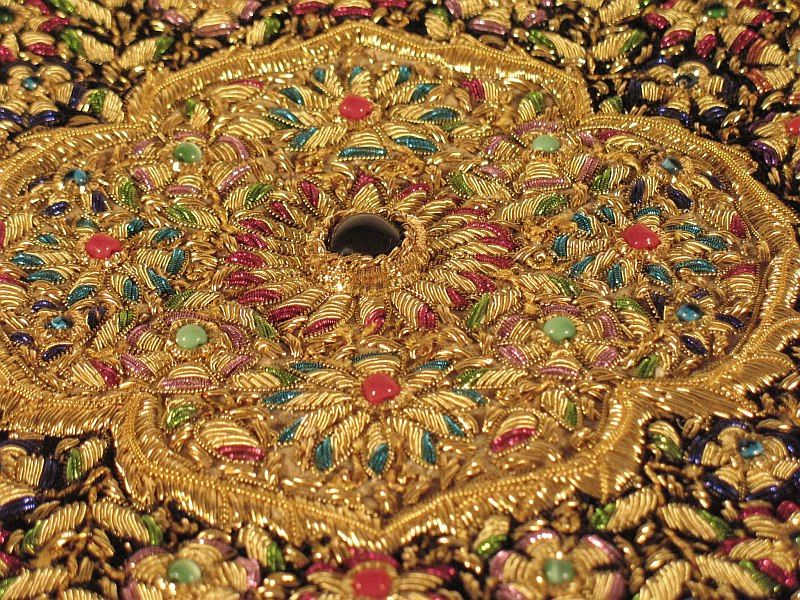===
0144,
10
===

=== |
 |
muḥāsabah : 'Computation, calculation, account; adjustment or settlement of accounts'. (Platts p.1006)
lagānā : 'To attach ... ; to fasten; to fix; to affix; to put, place; ... to put or set (to work), to employ, to engage; ... to put together (figures), to sum up, to add; to adjust, arrange'. (Platts p.961)
FWP:
SETS
MOTIFS == COMMERCE
NAMES
TERMS == AMBIGUITYPlainly we're dealing with commercial language. SRF points out a number of commercial idioms involving lagānā . But to me another such idiom is even more suggestive: muhr lagānā , 'to apply a seal'. A careful accountant uses a seal to identify and protect his records. A person who imagines himself as acting vaguely 'as if' or 'so to speak' [goyā] in the capacity of an accountant, might well use a vague thing 'something like' a heart to legitimate his accounting. For a seal is indeed 'something like' a heart: it's small, it's a mark of personal identity, it must be pressed (painfully?) hard in order to be useful; it must leave its characteristic (bloody?) mark. (For more on seals, see G{61,5}.) And of course, how better to seal an accounting 'of passion', than with 'something like a heart'?
But why not just go ahead and use a heart? Why that distancing dil sī chīz ? Here are some possible reasons:
=The heart is long gone (given away, broken, bled away, empty) and so is unavailable, and something else must be used in its stead to validate the accounts of passion.
=The heart has been gone so long that the speaker doesn't even remember it very well, and thus evokes it vaguely, not sure of its exact identity.
=The heart is now so worn and changed that the speaker doesn't even recognize it, and considers it to be not itself but a pale shadow 'something like' itself.
=The heart is so useless that it might as well be turned into a (heart-like) seal for validating account books, so that at least it can be good for something.
=The speaker is so remote and (Sufistically?) distant from the world, that the idea of a heart barely signifies. To him, it's just one more small trivial thing, really hardly worth mentioning, that people seem to go on and on about.
In other words, the difference between a 'heart' and 'something like a heart' is the activation of our own imaginations.